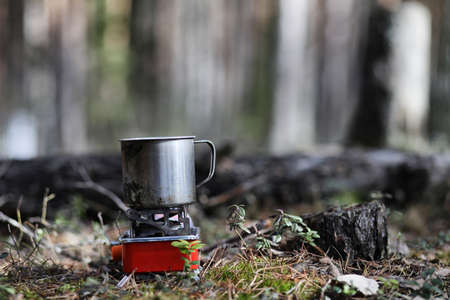Choosing UK-Friendly Ingredients for Camping
When it comes to planning your camping meals in the UK, selecting ingredients that are both practical and delicious is key to a stress-free outdoor adventure. Focus on British staples that you can easily find at local supermarkets such as Tesco, Sainsbury’s, or Morrisons, as well as charming village farm shops along your route. Think of classics like baked beans, tinned tomatoes, oatcakes, mature cheddar cheese, and fresh British eggs—these are not only versatile but also keep well without too much fuss. For proteins, consider packs of bacon, local sausages, or even pre-cooked chicken from the deli section for quick and satisfying meals. Don’t forget wholemeal bread or crumpets, which are perfect for breakfast or as a snack with jam from a nearby farm shop. Remember to take into account any dietary preferences in your group; plant-based milks, gluten-free wraps, and vegan spreads are increasingly available across the UK. By choosing familiar, easy-to-store ingredients suited to British tastes and conditions, you’ll ensure everyone is well-fed and happy throughout your camping trip.
Essential Meal Prep Gear for the British Campsite
When it comes to camping in the UK, the unpredictable weather and practical needs of family adventures make choosing the right meal prep gear essential. Packing smart ensures everyone stays well-fed and happy, no matter if you’re in a scenic Lake District field or pitching up along the Cornish coast. Here’s a closer look at the must-have cooking and storage equipment perfectly suited for British conditions.
Cooking Essentials: Compact and Weather-Proof Choices
British weather can be famously changeable, so it pays to have equipment that’s both robust and compact. Sturdy gas stoves with windshields are ideal for quick meals even in blustery conditions, while lightweight camping kettles help keep tea-time a comforting constant. Foldable utensils and nesting pans save space, making packing easier for families with little ones eager to help out.
Food Storage Solutions: Keeping Things Fresh
With cool boxes and thermal flasks on hand, you can keep food fresh and drinks warm throughout your trip. Modern cool boxes come in various sizes—some even electric, plugging into your car for extended cooling power. Thermal flasks are perfect for storing hot soups or chilled squash, ready for a post-adventure treat. Reusable containers not only protect snacks from soggy weather but also support eco-friendly habits—something we love teaching our children!
Recommended Meal Prep & Storage Gear
| Item | Best For | Why It’s Ideal for UK Camping |
|---|---|---|
| Cool Box (Electric/Passive) | Dairy, meats, salads | Keeps perishables safe during warm spells or unpredictable heatwaves |
| Thermal Flask | Hot drinks, soups | Maintains temperature; great for chilly mornings or evening cocoa under the stars |
| Reusable Containers (Plastic/Bamboo) | Snacks, leftovers | Weatherproof and stackable; reduces waste and keeps food dry |
| Foldable Stove & Windshield | Main meals, boiling water | Efficient cooking even in windy or rainy conditions common in the UK |
| Nesting Pans & Utensils | Cooking variety of dishes | Saves packing space; easy to clean in campsite sinks or streams |
Choosing reliable meal prep gear tailored to British camping ensures every family adventure is met with tasty meals and happy memories—rain or shine. With these essentials packed, you’ll be prepared for anything the great outdoors throws your way.
![]()
3. Planning Make-Ahead Family Meals
One of the best ways to ensure stress-free mealtimes on your UK camping adventure is to plan and prepare family meals ahead of time. By opting for dishes that can be made at home, you’ll save precious campsite hours and guarantee everyone has a hearty meal to enjoy after a day exploring the British countryside.
Choose Simple, Nutritious Recipes
When selecting what to cook, look for recipes that use wholesome ingredients and can withstand travel. British classics like cottage pie, veggie-packed pasta bakes, or even a tray of homemade sausage rolls are filling, familiar, and easy to reheat over a camp stove or firepit. Dont forget about healthy snacks—oat flapjacks, fruit scones, or cheese and cracker boxes are always crowd-pleasers with little ones.
Batch Cooking for Big Appetites
Batch cooking is your friend when it comes to camping. Prepare large portions of family favourites such as chilli con carne, stew, or homemade soup in advance. Freeze them in airtight containers; they’ll help keep your cool box chilled en route and slowly defrost ready for your first night’s dinner. This not only saves space but also means less washing up—music to every parent’s ears!
Easy Assembly at the Campsite
Think about meals that are simple to assemble on site. Pre-chop vegetables for stir-fries, marinate chicken or tofu before you leave home, and portion out breakfast oats in ziplock bags for quick porridge. Wraps and sandwiches can be quickly put together with prepared fillings, making lunchtime a breeze between woodland walks and riverside adventures.
Make It Fun: Get the Kids Involved
Turn meal prep into a family activity before you set off. Let children help measure out ingredients or mix up cookie dough—these small tasks foster excitement about eating together outdoors. Plus, involving kids helps them feel part of the adventure and teaches valuable life skills along the way.
With a little planning and some make-ahead magic, you’ll spend less time cooking and more time enjoying the great British outdoors together—ensuring everyone stays well-fed and happy around the campfire.
4. Best Food Storage Practices in the UK Outdoors
When camping in the UK, you’re bound to experience the famous changeable British weather—from sudden rain showers to sunny spells and chilly nights. Good food storage is essential for keeping your meals safe, fresh, and tasty throughout your adventure. Here are some family-friendly strategies for storing food safely and keeping those cheeky British foxes and badgers at bay.
Weatherproofing Your Food Supplies
The unpredictable UK climate can quickly spoil unprotected food. Always use airtight containers or resealable bags for both dry goods and perishables. Choose insulated cool boxes or thermal bags to keep items like milk, cheese, and meat cold. If you’re camping for several days, freeze portions of meals beforehand; they’ll act as ice packs and gradually thaw, staying safe for longer.
Managing Cool and Dry Goods
| Type of Food | Recommended Storage | Extra Tips |
|---|---|---|
| Dairy & Meats | Cool box with ice packs | Keep box in shade, replenish ice daily |
| Bread & Cereals | Airtight containers or bread bags | Store off damp ground, away from tent walls |
| Fresh Fruit & Veg | Mesh produce bags or ventilated tubs | Avoid sealed plastic; check daily for spoilage |
| Tinned Foods | Original tins in dry bag/box | Open only when needed; store opened tins in sealed tubs |
Keeping Wildlife Out: Foxes, Badgers, and More
UK campsites often have curious visitors! Foxes and badgers have a keen sense of smell and are known to raid unsecured supplies. Store all food—including snacks—in your car overnight if possible. If not, hang food bags from a sturdy tree branch or use animal-proof storage boxes. Always clean up crumbs and dispose of rubbish in animal-resistant bins provided at campsites.
Quick Checklist for Safe Outdoor Food Storage:
- Use waterproof and airtight containers
- Store perishables with plenty of ice or frozen packs
- Never leave food unattended outside tents
- Clean up thoroughly after every meal to avoid attracting wildlife
- If using cool boxes, top up with fresh ice regularly—British summer days can be warmer than you think!
By following these best practices, you can enjoy delicious meals on your UK camping trip while keeping your family—and the local wildlife—safe and happy.
5. Simple and Wholesome On-Site Cooking Ideas
Cooking together outdoors is one of the best ways for families to bond during a UK camping trip, and you don’t need a fancy kitchen to enjoy nourishing meals. With a bit of planning and some local ingredients, you can whip up delightful campfire classics and British favourites that are both easy and satisfying.
One-Pot Wonders
Nothing beats the convenience of a one-pot dish after a day exploring the countryside. Try a traditional British stew using root vegetables, local sausages, and tinned beans—all simmered in a sturdy pot over your campfire or portable stove. Or go for a veggie-packed pasta with fresh herbs from the nearest farm shop. These hearty options mean less washing-up and more time enjoying the great outdoors with your loved ones.
Grilled Treats for All Ages
The classic British barbecue is a must on any camping holiday. Pack some marinated chicken thighs, veggie skewers, or even halloumi slices—perfect for grilling over hot coals. Don’t forget corn on the cob or locally made baps for an authentic touch. Let little hands help assemble their own kebabs with colourful peppers and mushrooms, making it a fun, interactive meal.
Traditional British Picnic Fare
If you’re heading out for the day, why not prepare some picnic classics? Think Scotch eggs, pork pies, or simple cheese and pickle sandwiches wrapped in wax paper. Add some cherry tomatoes and apples from the market, plus a flask of tea, and you’ve got a proper British spread that’s easy to pack and keeps everyone smiling between adventures.
Tips for Family-Friendly Cooking
Keep recipes simple so everyone can get involved—children love stirring pots or wrapping spuds in foil for the fire. Use local produce where possible: not only does it taste better, but it also gives kids a chance to learn about regional foods. Most importantly, relax and savour mealtimes as a family—these shared moments around the campfire often become the heart of your UK camping memories.
6. Minimising Waste and Staying Eco-Friendly
As you plan your UK camping trip, making mindful choices about waste is just as important as meal prep and food storage. Reducing single-use packaging is a brilliant way to start. Opt for reusable containers, beeswax wraps, and cloth bags instead of cling film and disposable sandwich bags. When shopping for your camping meals, choose products with minimal or recyclable packaging. This not only cuts down on rubbish but also makes packing up quicker and easier—an absolute win for families on the go.
Don’t forget to set up a simple recycling system at your campsite. Bring along two bags or bins: one for recyclables like cans, plastic bottles, and cardboard, and another for general waste. Many UK campsites have recycling facilities, so separating your rubbish as you go helps keep things tidy and stress-free when it’s time to leave.
Embracing the ‘Leave No Trace’ principles is especially important in the British countryside. Teach children to pick up every scrap of litter—even tiny bits of food wrap or crumbs—and make it a fun family challenge to leave the site cleaner than you found it. If you’re wild camping, take all waste home with you; never bury rubbish or leave it behind.
Small eco-friendly habits add up: bring your own reusable water bottles and cutlery, avoid disposable plates and cups, and try to compost any food scraps where facilities allow. These little changes help preserve the beauty of our national parks and green spaces for future generations.
By making thoughtful choices about packaging, recycling diligently, and tidying up together, your family can enjoy delicious campfire meals while caring for the countryside—leaving nothing behind but happy memories.


